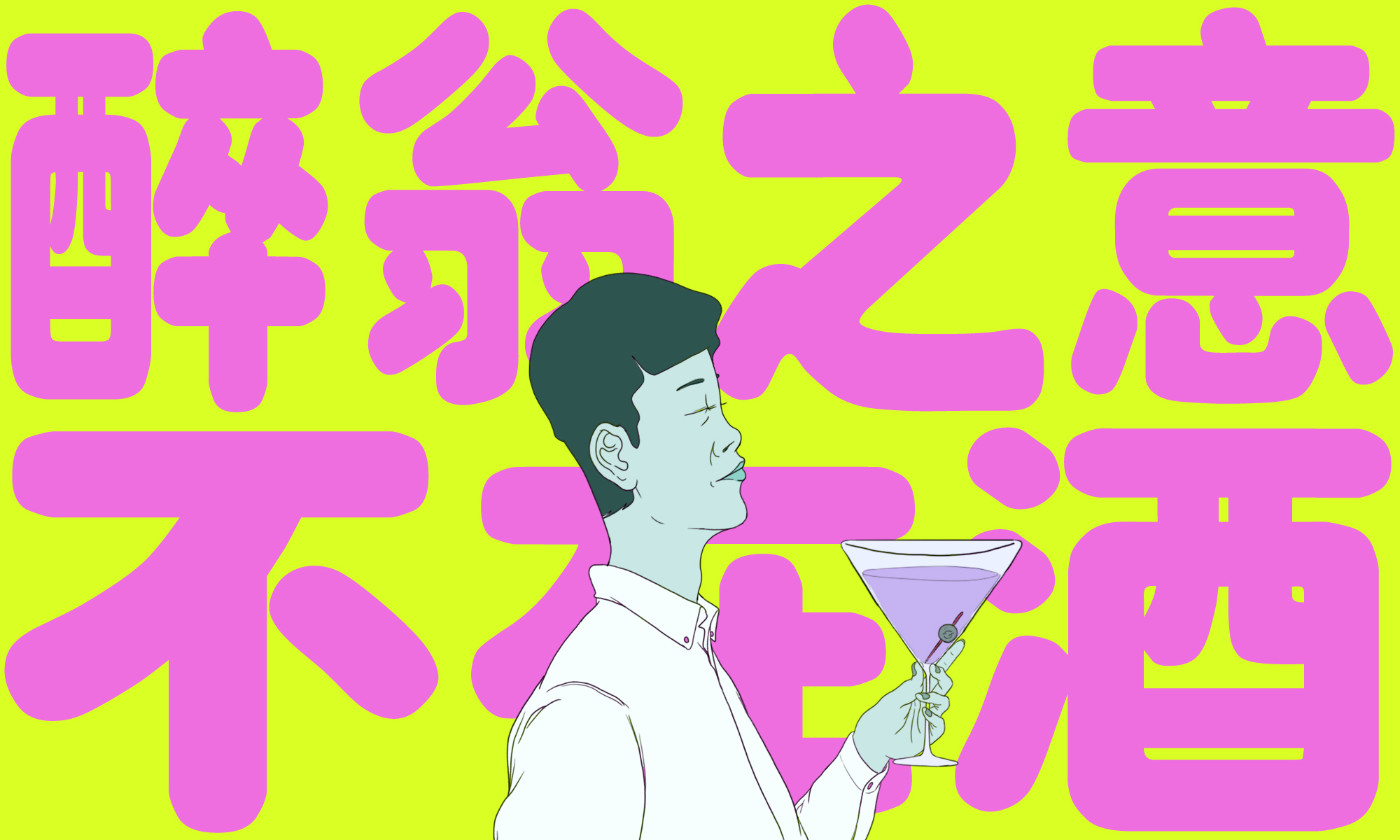‘A drunkard drinks not for the liquor ’— Phrase of the Week
State giants China Post and Sinopec, as well as sports brands Li Ning and Anta, are crossing over into China's ‘hot’ coffee sector. But their motivations are very different from those of Starbucks and Luckin.

Our phrase of the week is: A drunkard drinks not for the liquor (醉翁之意不在酒 zuì wēng zhī yì búzài jiǔ).
It can also be written as a four-character idiom: 醉翁之意 zuì wēng zhī yì.
Context
If you ask anyone what’s changed the most in China over the last three years (since many people were last there), one answer might be: “Your favorite restaurant has been replaced by a load of coffee shops.”
China’s coffee sector has been burning hot in recent years. The phrase coffee fever — literally “coffee hot” (咖啡热 kāfēi rè) — has become standard lingo. The “hot” refers to the investor and consumer craze for the drink, not its temperature.
Last year, Starbucks, the world’s largest coffeehouse chain, announced that it will open more than 3,000 new stores in China within three years.
Starbucks and its upstart Chinese competitor Luckin Coffee are the two main players with their vast networks of thousands of stores. And there are a host of new competitors and crossover brands from the most unlikely places.
State giants China Post (中国邮政), PetroChina (中国石油), and Sinopec (中石化) have all opened new coffee outlets across their existing networks in China. Sports brands like X-Step, Anta, and Li Ning have added coffee to their in-store offers.
Some industry experts say there are already too many competitors in a crowded sector. But a closer look reveals that they may not be competing for the same market, and might not even be trying to achieve the same thing, as one analyst pointed out recently, giving us this week’s Phrase of the Week:
It seems to be a coffee business, but brands such as Li Ning are not in the same business as professional coffee brands such as Luckin Coffee and Starbucks.
Zhu Danpeng, vice chairman of the Guangdong Provincial Food Safety Promotion Association, believes: “‘A drunkard drinks not for the liquor.’ Companies sell coffee not to make money. It’s an add-on to their existing services to make their customers ‘stickier.’”
看似都是咖啡生意,但李宁等品牌和瑞幸、星巴克等专业咖啡品牌并没有站在同一赛道上。广东省食品安全保障促进会副会长朱丹蓬认为,“醉翁之意不在酒。企业不是要通过卖咖啡赚多少钱,这只是一个服务体系,让消费者的黏性更强。”
Kànsì dōu shì kāfēi shēngyì, dàn lǐníng děng pǐnpái hé ruìxìng, xīngbākè děng zhuānyè kāfēi pǐnpái bìngméiyǒu zhàn zài tóngyī sàidào shàng. Guǎngdōng shěng shípǐn ānquán bǎozhàng cùjìn huì fùhuìzhǎng zhūdānpéng rènwéi,“zuì wēng zhī yì búzài jiǔ. Qǐyè búshì yào tōngguò mài kāfēi zhuàn duōshǎo qián, zhè zhǐshì yígè fúwù tǐxì, ràng xiāofèizhě de nián xìnggēng qiáng.”
Translation
A drunkard drinks not for the liquor dates back to the Song dynasty (AD 960–1279).
In The Story of Old Tippler’s Pavilion (醉翁亭记 zuì wēng tíng jì), Song-dynasty essayist Ōuyáng Xiū 欧阳修 explains that the experience of being drunk is not about the drink at all:
A drunkard does not care about what he drinks. It is to appreciate the mountains and rivers, which brings joy to the heart and is also embodied by the drink.
醉翁之意不在酒,在乎山水之间也。山水之乐,得之心而寓之酒也。
Zuì wēng zhī yì búzài jiǔ, zàihū shānshuǐ zhī jiān yě. Shānshuǐ zhī lè, dé zhī xīn ér yù zhī jiǔ yě.
In modern Chinese, the phrase describes a situation where the objective of doing something is not what is expected. There is an ulterior motive.
For China’s latest arrivals in the coffee sector, it may be a crowded market, but to predict their failure assumes that they all have the same goals.
Maybe they’re not in it for the coffee, but to keep their customers happy while they are spending money on petrol, post, and pumps.






